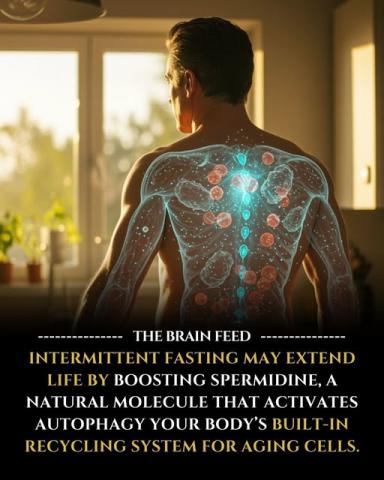In the relentless world of tennis, where every millisecond and millimeter counts, players are constantly seeking an edge. The pursuit isn't just about perfecting a topspin backhand or a powerful serve; it's about optimizing the body itself. Beyond cutting-edge rackets and personalized training regimens, a powerful new health strategy is gaining traction: fasting. And now, scientists have discovered the fascinating cellular mechanism behind its benefits—a mechanism that reads like a dream for an athlete's longevity and resilience.
The Cellular Clean-Out: Autophagy on the Court
For years, the benefits of intermittent fasting have been discussed in athletic circles for weight management and metabolic health. But new research delves deeper, revealing how fasting triggers a vital cellular process called autophagy—literally meaning "self-eating."
Here’s how it works: During periods of fasting, your cells initiate a spring-cleaning process. They seek out old, damaged, and dysfunctional components—like worn-out mitochondria (the powerhouses of the cell) and misfolded proteins—and break them down for recycling. This prevents a toxic cellular buildup that is linked to chronic diseases like diabetes, heart disease, and Alzheimer's.
For a tennis player, the implications are profound. Imagine your muscle cells, after thousands of explosive movements and hard stops, becoming more efficient at clearing out the debris of intense exercise. This isn't just about recovery; it's about upgrading the very quality of your cells.
The Star Player: Spermidine Takes Center Court
The breakthrough discovery is the molecule that makes this all possible: spermidine. Researchers found that fasting significantly increases spermidine levels in the body. In experiments spanning from yeast and worms to mice and human cells, elevated spermidine was the key driver behind healthier, more resilient, and longer-living cells.
The most telling finding? When scientists blocked spermidine, most of the anti-aging and health-protective benefits of fasting disappeared. This cemented spermidine's role as the central playmaker in the fasting-autophagy game plan.
Expert Advice: Integrating the Science into Your Training
We spoke with Dr. Elena Vance, a sports physiologist who works with professional athletes, to translate these findings into practical advice.
"Tennis is a sport of longevity. We see players like Novak Djokovic, a known proponent of mindful nutrition and fasting, competing at the highest level deep into their 30s," says Dr. Vance. "This research on spermidine and autophagy gives us the 'why' behind those strategies. It's not just about calories; it's about signaling your body to repair and strengthen itself at the cellular level."
Dr. Vance offers these tips for players interested in exploring this:
- Start Slow: If you're new to fasting, don't jump into a 24-hour fast. Begin with a simple 14-hour overnight fast (e.g., finish dinner at 7 PM and break your fast at 9 AM the next day). This is manageable and still provides benefit.
- Time it With Recovery: Consider incorporating longer fasts (16-18 hours) on rest days or light training days. This is when your body can best focus on cellular cleanup without being taxed by immediate energy demands.
- Fuel Smartly: When you break your fast, prioritize high-quality proteins and nutrients to support muscle repair and synthesis. Your newly cleaned cells will be ready to put those building blocks to optimal use.
- The Spermidine Supplement Question: The research suggests combining fasting with spermidine supplements could be a powerful strategy. While promising, Dr. Vance advises caution: "This is an emerging field. Always consult with a healthcare professional or a sports dietitian before adding any new supplement. You can also find natural spermidine in foods like wheat germ, aged cheese, mushrooms, legumes, and whole grains."
The Final Point
The goal for any serious tennis player is not just to win the next match, but to have a long, healthy, and powerful career. The science of fasting, spearheaded by spermidine-induced autophagy, offers a compelling strategy to achieve just that. It’s about moving beyond training the muscle to training the very cells that build it.
By giving your body a strategic break from digestion, you might just be triggering the most important internal match point of all: the fight against cellular aging.

